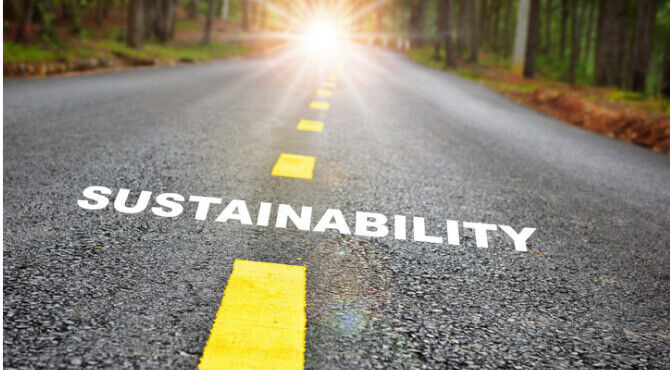Businesses urge more climate action after COP26
Business leaders in the UK have given a guarded welcome to the achievements at the two-week COP26 climate summit in Glasgow, but have warned that much more still needs to be done.

 15 November 2021
15 November 2021Related reading from Relocate Global
- Climate change seen as biggest business risk
- UK firms launch net-zero projects as COP26 starts
- Concerns growing over employers' green credentials
Business key role in limiting climate change
Tony Danker, Director-General of the Confederation of British Industry (CBI), said that where COP26 had been "truly pioneering" was in terms of the contribution of businesses could make to climate targets."Over the past few weeks, businesses have shown that they are committed to moving from laggard to leader on climate and to bring fresh impetus, innovation and ingenuity to delivering net zero. Regardless of the political outcome of COP26, business stands ready to go further and faster to play its part,” he said.But he added that politicians, activists and businesses would have to keep working beyond Glasgow to keep the 1.5 degree target alive. “While profound movement on methane reduction and deforestation – alongside the historic US-China bilateral agreement and Indian government’s setting of net zero targets – represent huge strides forward, more must be done in the next twelve months under the UK’s presidency," Mr Danker stressed.“Pressure will surely fall on negotiators to come back to the table in Cairo (venue for next year's COP27) to strengthen Nationally Determined Contributions and in particular address the stubborn issues of reducing coal use, the development of carbon markets, limiting fossil fuel subsidies and delivering necessary transition finance for nature loss and damage."Transition to sustainable businesses
Shevaun Haviland, Director-General of the British Chambers of Commerce (BCC), said that if the UK was going to stand a chance of hitting net zero by 2050, businesses would have to be at the heart of the strategy to achieve it."They will be the ones that create and produce the technology to allow us all to live greener lives and will be vital in driving the consumer behaviour required to reach net zero," she said. “It will also be business that provides one of the biggest dents in CO2 emissions by making the transition themselves.“Everyone understands the imperative, but our research also shows that for many firms, especially SMEs which make up around 99% of all UK businesses, reaching net zero is not a top priority when they are still struggling to keep their heads above water due to the pandemic.“There is a real danger that smaller businesses will get left behind unless politicians and business leaders come together to galvanise action."Cities home to strategies to tackle climate change
Mayor of London, Sadiq Khan, who chairs the C40 Cities Climate Leadership Group – an organisation comprising 97 cities around the world that are home to a quarter of the global economy – welcomed the final agreement in Glasgow but warned it "simply did not meet the scale of the challenge".He added: "We need coal to be phased out – not phased down. So, as leaders return home from COP26, it is vital those nations who have it in their power to help reverse our planet’s decline join those of us committed to doing so to give our world its best chance of survival."Mr Khan said he had put tackling the twin threats of the climate crisis and toxic air pollution at the heart of his mayoralty. "As too many national governments continue to delay taking action, London and the almost 100 C40 cities across the globe will continue to lead the way in helping solve it. Cities are the doers – and now we need the delayers to join us.“Cities are using every lever at our disposal to take meaningful climate action now by reducing pollution, minimising waste, planting trees, investing in green public transport and sustainable energy sources – but we simply cannot avert a catastrophe of this magnitude alone.”Eliot Whittington, Director of the UK and European Corporate Leaders Groups, said COP26 had triggered a welcome wave of new commitments and generated the energy to take action."COP26 hasn’t kept us on a path for warming levels below the vital 1.5C, but if the range of commitments from governments, business and investors to deliver real action is reflected in and inspires more ambitious new targets next year then we still have a chance of doing this – that is insufficient but undeniable and positive progress," he said.Read more news and views from David Sapsted.
Subscribe to Relocate Extra, our monthly newsletter, to get all the latest international assignments and global mobility news.Relocate’s new Global Mobility Toolkit provides free information, practical advice and support for HR, global mobility managers and global teams operating overseas. Access hundreds of global services and suppliers in our Online Directory
Access hundreds of global services and suppliers in our Online Directory©2025 Re:locate magazine, published by Profile Locations, Spray Hill, Hastings Road, Lamberhurst, Kent TN3 8JB. All rights reserved. This publication (or any part thereof) may not be reproduced in any form without the prior written permission of Profile Locations. Profile Locations accepts no liability for the accuracy of the contents or any opinions expressed herein.






































